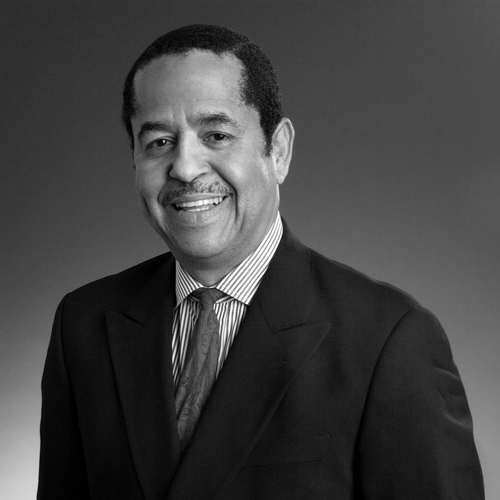David Leitch has had some pretty great mentors. He clerked for Chief Justice William H. Rehnquist and worked closely with John Roberts as a partner at Hogan & Hartson. Just before the terrorist attacks of September 11, 2001, he accepted a position as chief counsel to the Federal Aviation Administration. Then, he became George W. Bush’s deputy counsel and deputy assistant to the president.
Today, Leitch is group vice president and general counsel at Ford Motor Company. He’s used legal and leadership skills developed at the Supreme Court and the White House to help Ford survive a crisis in the auto industry. Now, he’s positioning the automaker for continued success by uniting its 210 global lawyers around one single vision.
Leitch has made learning through observation a lifelong pursuit. It started at a young age when he saw how important precision, communication, logic, and language were in his father’s work as a mechanical engineer. That sparked in Leitch a passion for critical thinking. As an associate, and later, a partner at Hogan & Hartson (now Hogan Lovells), Leitch started to develop the philosophy he uses to guide Ford’s worldwide legal team. “I spent lots of time working with John Roberts and learned the great value of careful legal thinking,” he says. “Roberts always took such a rigorous, analytical approach to every legal problem he encountered. He reviewed each brief several times to eliminate hyperbole and any unintended turn of phrase that could be misunderstood. . . Now, as general counsel, I have to be prepared for any possible question that might come my way. Everything I write or prepare should be an accurate, thoughtful, and compelling document.”
Several major events—from Supreme Court confirmations to 9/11—have shaped Leitch as a leader. In the days and months after the terrorist attacks in New York and metro Washington, DC, Leitch worked to address security concerns and restore the nation’s air-traffic system. While working in the West Wing, he advised the president on various legal matters including the war on terror and judicial appointments. During Leitch’s tenure, President Bush successfully nominated John Roberts to the US Court of Appeals for the DC Circuit and later—after Leitch left the White House—elevated him to the Supreme Court. “I’ve had the privilege to be involved in some notable moments, and the intense experiences have taught me never to get too high or too low,” Leitch says. “Work on the problem in front of you and focus on moving forward.”
By 2005, the year of Leitch’s arrival as general counsel, Ford was already facing troubling times. High gas prices drove auto sales down. An aging workforce drove internal health care costs up. Standard & Poor’s downgraded the iconic company’s corporate bonds, and profits trended down. The next year, Ford lost a record $12.7 billion.
As other automakers took billions in federal dollars, Leitch acted as an advisor to CEO Alan Mulally and others while managing all legal issues of a comprehensive restructuring and working on a $14.5 billion debt reduction, which was responsible for helping Ford avoid the notorious government bailout. The company mortgaged assets and bought back unsecured debt. During this time, Leitch remade the legal department. He cut his department nearly in half and worked with the remaining legal staff to find ways to accomplish necessary tasks more efficiently. He and his team maintained a disciplined approach to settling lawsuits, resulting in a reduction of lawsuit caseload by 20 percent, and he continued to encourage pro bono participation by the company’s lawyers. After the moves, Leitch’s legal team—and Ford as a whole—started to thrive again. Ford earned $2.7 billion in 2009 after losing money the previous year. Ford earned $7.2 billion in 2013.
Now, as Ford increases global production, Leitch manages lawyers in worldwide markets with concentrations in the United Kingdom, Germany, Brazil, and China. As general counsel for a large multinational corporation, Leitch realizes he can’t master every legal issue that arises in each jurisdiction. “I trust good experts to do their jobs well, and I try my best to provide them with the support and resources they need,” he says. Over the years, Leitch has learned when to trust others, when to step in personally, and where to draw the line.
Biweekly business plan review meetings help keep regional teams unified. In those sessions, Leitch receives full reports and hears about pressing or potential legal issues. “We have a culture of transparency, and a safe environment for sharing bad news,” he says. “Leaders who fail to create a safe environment will never know what they’re not being told.”
Although technology helps geographically separated teams interact, Leitch is a big believer in face-to-face interaction, so he travels when possible to communicate personally. The business plan reviews and personal interactions are helping Leitch identify best practices from worldwide locations and implement them throughout the company. “Not all legal wisdom should come from Dearborn, [Michigan],” he says, adding that it’s important to keep an international perspective and recognize the value of a global team.
As the renewed company strengthens and moves forward, Leitch is focused on managing litigation and protecting intellectual property. Ford is entering an intense product cycle, during which it will deliver innovative products like an all-aluminum Ford F-150. That means the company will generate massive amounts of IP that its lawyers must identify and protect for the company’s long-term success. As rapid growth and production increase in parts of the world like China and India, the legal department must provide adequate support for manufacturers. They must broaden in scope and understand laws and regulations that vary by region.
One way Leitch and his colleagues are ensuring they do that is by creating “centers of excellence,” which are virtual teams that bring lawyers together to discuss emerging global issues like privacy and social media. “Making sure we have experts that talk to each other advances our thinking and management of legal problems,” Leitch says. “It helps us improve by using the rich experience of talented attorneys all around the world.”
Eight years after the onset of the financial crisis, Leitch has led his team through to the other side. With major legal issues resolved, communication improved, and a solid foundation of transparency, his team is ready to anticipate developing legal issues and prepare for any problems that arise. “We’ve incorporated what everyone on the legal team has to offer and are moving ahead in a more cohesive way,” Leitch says. Now, he and his team are primed for competition on the world stage.


